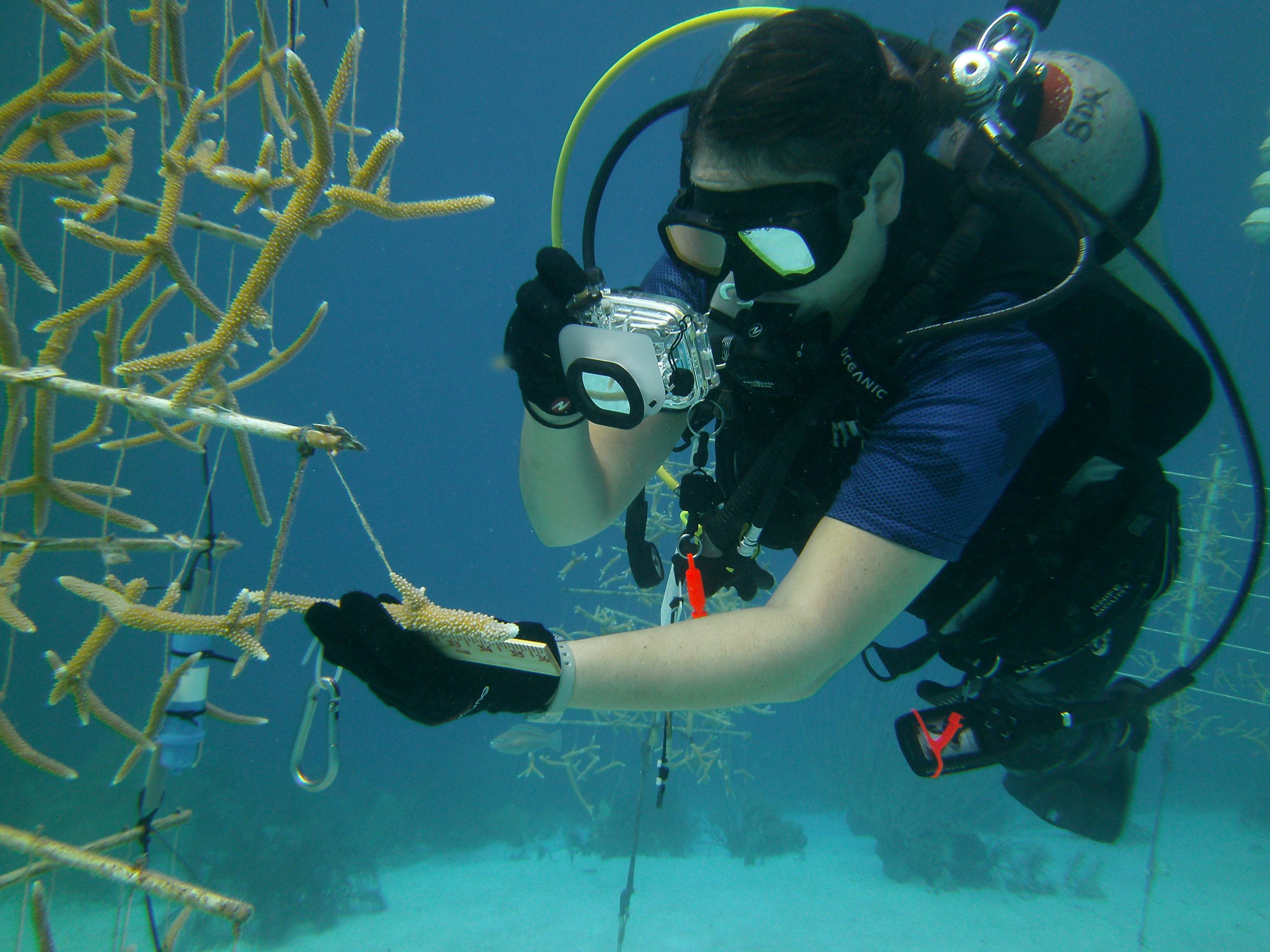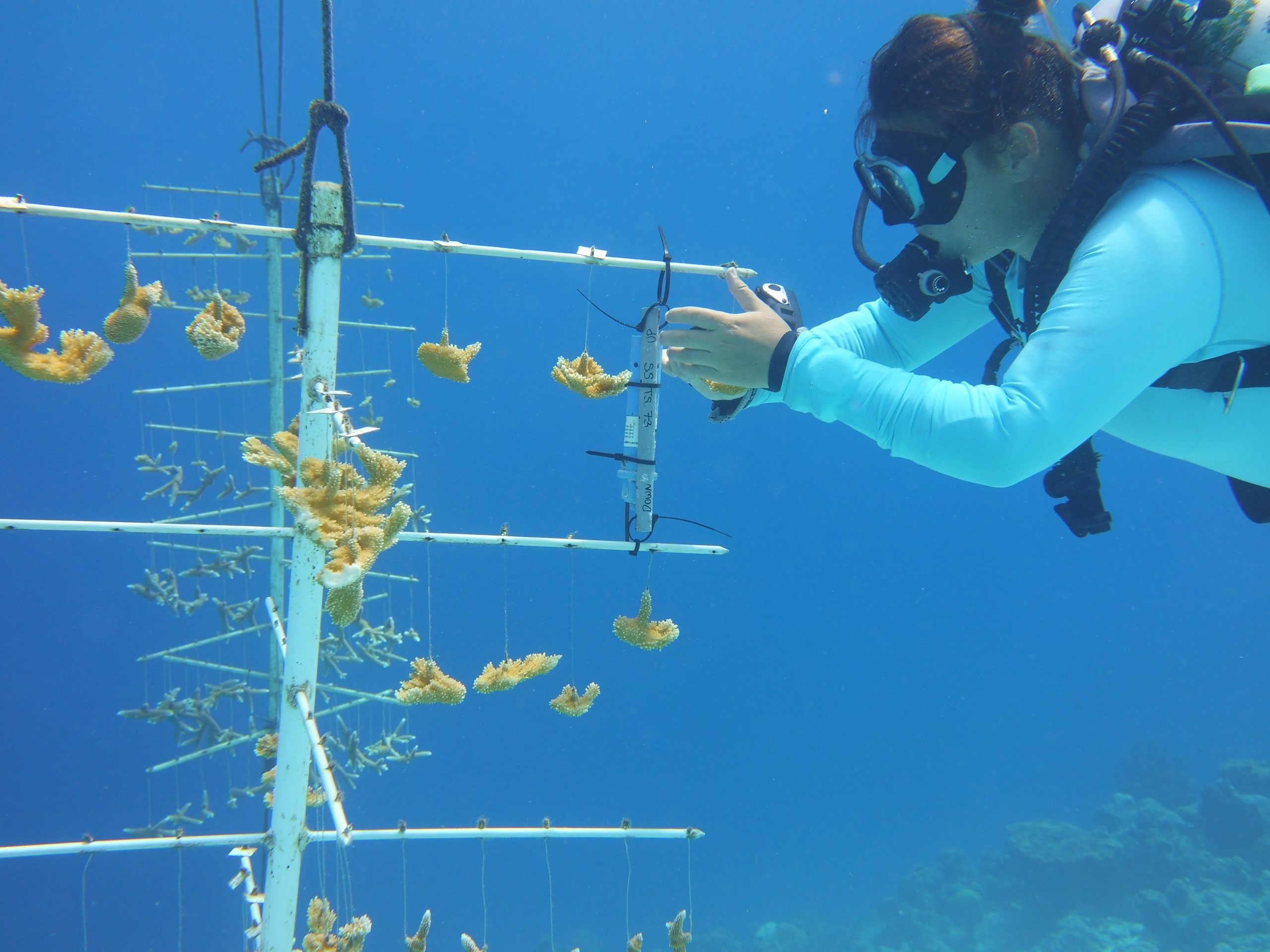If corals are unable to keep pace with the changing climate, many reefs are predicted to disappear within the next few decades. In addition to reducing sources of stress and enhancing coral populations through restoration, strategies to increase coral stress tolerance and resilience have become a recent focus within coral conservation research.
Epigenetics refers to changes in the function of genes, such as turning a certain gene “on” and another “off”, without changes to the DNA sequence. Epigenetic modifications, including DNA methylation, help organisms respond to environmental stress and can facilitate quick acclimation to changes in environmental conditions. However, there are still many unknowns about environmental epigenetics in reef building corals.
In collaboration with Reef Renewal Foundation Bonaire (RRFB), Ph.D. student Serena Hackerott has recently initiated a year-long study to assess connections between epigenetic modifications and coral performance across variations in environmental conditions. Serena will monitor the demographic and physiological performance and epigenetic DNA methylation of two endangered Caribbean corals, Acropora cervicornis (staghorn coral) and Acropora palmata (elkhorn coral) on four RRFB coral nursery sites on Bonaire, Caribbean Netherlands. The study sites were selected to cover a range of environmental conditions on Bonaire, including different distances to sources of runoff and nutrient pollution. Additionally, Serena will monitor these corals across different seasonal timepoints, including Bonaire’s rainy and dry seasons, as a “natural experiment” exposing corals to different water temperatures and nutrient levels.
Within both of the two coral species, different genotypes or genetic “strains” are present at each of the study sites which will allow Serena to compare the genetic and epigenetic influence on coral performance. While coral restoration has recently focused on identifying strong coral genotypes, this study will provide insights into the additional effect of environmentally responsive epigenetic mechanisms on the performance of two important coral species.
This work has been made possible by support from Reef Renewal Foundation Bonaire, FIU CREST-CAChE, FIU College of Arts and Sciences, FIU Center for Coastal Oceans Research, and FIU Tropics.












